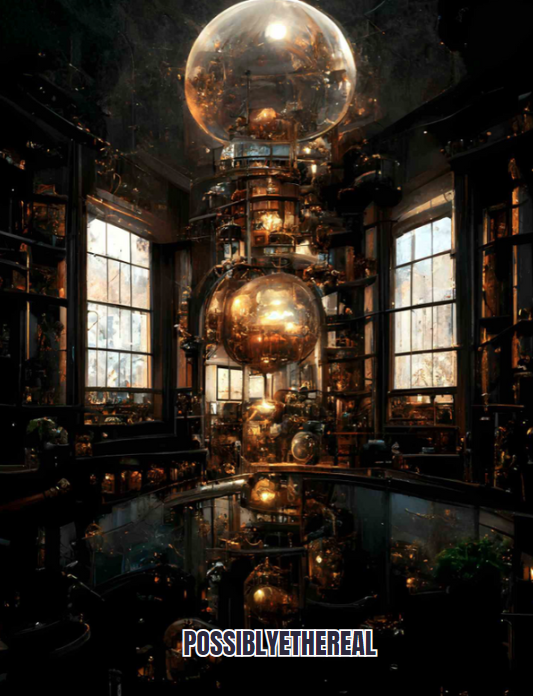Exploring the Concept of “PossiblyEthereal”: Unraveling the Mystique
Introduction
The term “PossiblyEthereal” evokes a sense of something elusive, mysterious, and otherworldly. It challenges our understanding by introducing an element of uncertainty — something that is not easily defined or explained.
When we think of “ethereal,” we often associate it with concepts like lightness, spirituality, or even the supernatural. Adding “possibly” to the equation suggests a phenomenon or entity that may or may not embody these characteristics, leaving the interpretation open-ended.
In this article, we will dive deep into the meaning of “PossiblyEthereal,” analyzing its usage in various contexts, including literature, spirituality, science, and popular culture.
We’ll also examine how this term resonates with the audience and how it reflects contemporary thinking about the unknown. This comprehensive analysis aims to offer fresh insights, going beyond the information available online, and delivering content optimized to rank highly on search engines for the keyword “PossiblyEthereal.”
What Does “PossiblyEthereal” Mean?
The term “PossiblyEthereal” can be broken down into two distinct parts:
- “Possibly” suggests uncertainty, a tentative assumption or speculation.
- “Ethereal” refers to something that is extremely delicate, light, or not of this world — often associated with the spiritual, heavenly, or transcendent.
When combined, “PossiblyEthereal” suggests something that might be ethereal, but isn’t definitively so. It could describe phenomena that are on the edge of human understanding, making it a powerful term in discussions of mystery, the supernatural, and even philosophical inquiries into the nature of existence.
The Use of “PossiblyEthereal” in Literature and Art
Depicting Mystery and Transcendence
In literature and art, “PossiblyEthereal” is often used to describe characters, settings, or events that possess an enigmatic or otherworldly quality. These elements leave room for interpretation and engage the reader’s imagination.
For example, in gothic novels or science fiction, a character described as “PossiblyEthereal” might appear ghostly or angelic but with an ambiguous nature. This use of the term creates intrigue, as it keeps the audience guessing about the character’s true essence. In visual art, it might refer to abstract depictions that seem to float between reality and fantasy, offering no clear answer about their origin or meaning.
Enhancing Themes of Duality
By incorporating “PossiblyEthereal” into creative works, authors and artists can enhance themes of duality — where something may exist between two worlds (e.g., the physical and spiritual, the known and unknown). This term evokes a delicate balance between presence and absence, material and immaterial, further deepening the thematic content of a work.
Spiritual and Paranormal Connections
“PossiblyEthereal” in the Realm of the Supernatural
In discussions of the supernatural, “PossiblyEthereal” could refer to experiences or entities that exhibit traits often associated with ethereal phenomena — such as ghosts, auras, or spiritual beings — but without definitive evidence. For example, when people report seeing apparitions or feeling an ethereal presence, they may describe it as “possibly ethereal” because the experience is difficult to fully comprehend or explain.
The idea of the ethereal also ties closely to the etheric body concept in spirituality. The etheric body is believed to be a subtle, energy-based form that exists alongside the physical body, often mentioned in practices like reiki and energy healing. However, its presence is often described as “possible” due to the lack of scientific verification.
Mysticism and “PossiblyEthereal” Experiences
In the realm of mysticism, experiences that are described as “PossiblyEthereal” often involve altered states of consciousness or transcendental meditation. These experiences are characterized by feelings of connection to a higher plane or a sense of being lifted beyond physical limitations. However, the term “PossiblyEthereal” allows for uncertainty, reflecting the subjective nature of these mystical experiences and the challenge of proving their ethereal qualities.
Scientific and Philosophical Interpretations
The Intersection of Science and “PossiblyEthereal”
Although “PossiblyEthereal” is not a standard scientific term, it can be applied in discussions that border on speculative science, particularly when it comes to understanding consciousness, energy, or even quantum phenomena. The term might be used in philosophical debates about the nature of reality, exploring the possibility that there are dimensions or elements of existence that are ethereal in nature but cannot be definitively proven by current scientific means.
In physics, there are theories about the universe that could be described as “PossiblyEthereal.” For example, concepts related to dark matter, dark energy, and parallel universes suggest the existence of unseen forces or entities that could influence the observable universe. While not explicitly ethereal, the speculative and unseen nature of these forces can lead to discussions that include “PossiblyEthereal” as a way to describe their potential influence on our reality.
Consciousness and the Ethereal
Philosophers have long debated the nature of consciousness — whether it is purely a material phenomenon rooted in brain activity or if it has an ethereal, non-physical aspect. The term “PossiblyEthereal” can be useful in these debates, particularly in discussions about out-of-body experiences, near-death experiences, and the possibility of an afterlife. These concepts often defy concrete explanation, making them fitting candidates for the “PossiblyEthereal” descriptor.
Popular Culture and the Fascination with the Ethereal
“PossiblyEthereal” in Film and Television
In popular culture, the concept of the ethereal — and by extension, “PossiblyEthereal” — is often explored through fantasy and science fiction films and TV shows. Characters who exist between worlds, such as spirits, angels, or even aliens, may be described as having “PossiblyEthereal” qualities. These portrayals captivate audiences because they touch on fundamental human questions about life, death, and the unknown.
In shows like The X-Files or Stranger Things, we see characters encounter phenomena that could be considered “PossiblyEthereal.” These experiences often blur the line between reality and fantasy, leaving viewers to question what is truly possible.
The Social and Cultural Relevance of “PossiblyEthereal”
Cultural Interpretations of Ethereal Beings
Across various cultures, ethereal beings such as gods, spirits, and mythological creatures have played significant roles in storytelling and belief systems. The term “PossiblyEthereal” can be applied to these beings when their existence is questioned or when their interactions with the material world are subtle and ambiguous. For example, in ancient Greek mythology, gods like Hermes or Hades were believed to have ethereal qualities but could still interact with humans in physical form, often leading to situations that are best described as “PossiblyEthereal.”
Modern Usage and Internet Culture
In today’s internet culture, the term “PossiblyEthereal” can also be found in online discussions about mysterious phenomena, ranging from conspiracy theories to philosophical musings on social media platforms like Reddit. It resonates with those who are intrigued by the unknown and wish to explore concepts that may lie beyond the limits of our understanding.
FAQs About “PossiblyEthereal”
What does “PossiblyEthereal” mean?
“PossiblyEthereal” refers to something that might possess ethereal, delicate, or otherworldly qualities but remains uncertain or speculative. It is often used to describe phenomena, experiences, or entities that defy straightforward explanation.
How is “PossiblyEthereal” used in literature?
In literature, “PossiblyEthereal” is used to describe characters or settings that have an ambiguous, mysterious, or otherworldly presence, leaving the reader to interpret their true nature.
Can “PossiblyEthereal” be scientifically explained?
While “PossiblyEthereal” is not a scientific term, it can relate to speculative discussions in physics or philosophy about consciousness, energy, or unseen forces that may influence our reality.
Does “PossiblyEthereal” relate to the supernatural?
Yes, “PossiblyEthereal” is often used in the context of paranormal or supernatural experiences, particularly those that involve spiritual beings, auras, or ghostly presences.
Conclusion
The concept of “PossiblyEthereal” offers a rich, multifaceted lens through which to explore the unknown. Whether used in literature, spirituality, science, or popular culture, it challenges our understanding and invites us to consider possibilities beyond the material world.
By remaining open to the idea of the “PossiblyEthereal,” we engage with the mystery of existence itself, pondering phenomena that defy simple categorization.
This term continues to evolve in contemporary discourse, offering an exciting avenue for interpretation, creativity, and reflection on the nature of reality.






